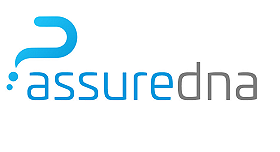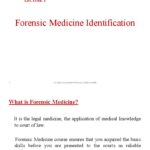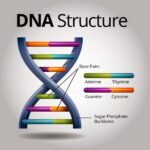So, you’re considering unlocking the secrets hidden within your very being? DNA testing has become remarkably accessible, a far cry from the futuristic concept it once seemed. But with a veritable cornucopia of options available, the paramount question arises: Which DNA testing service reigns supreme? Navigating this genomic landscape can feel a bit like traversing a labyrinth, filled with promises of ancestral revelations, health insights, and personalized wellness plans. What aspects should be considered, and what pitfalls should be avoided in the pursuit of your genetic truth?
I. Delving into the DNA Testing Landscape: A Primer
Before embarking on your genetic odyssey, it’s crucial to understand the broad strokes. DNA testing services generally fall into several distinct categories, each catering to specific needs and interests. Ancestry testing, arguably the most popular, aims to trace your lineage, identifying ethnic origins and connecting you with distant relatives. Health testing, on the other hand, delves into your predisposition to various diseases and traits, offering a glimpse into your future well-being.
II. Unveiling Your Ancestral Tapestry: Unearthing Family Roots
For those yearning to connect with their heritage, ancestry DNA tests offer a compelling avenue. These tests typically analyze autosomal DNA, inherited from both parents, providing a comprehensive overview of your ethnic composition. Some providers also offer mitochondrial DNA (mtDNA) testing, tracing your maternal lineage, and Y-chromosome DNA testing (for males), exploring your paternal lineage.
The size and scope of a company’s reference database is paramount. A larger database translates to a higher likelihood of finding matches with living relatives and obtaining more granular ethnicity estimates. Consider the geographical regions emphasized in the database. Is it skewed towards certain populations, potentially impacting the accuracy of your results? It is important to consider the implications of a potential skew.
III. Deciphering Your Genetic Health Blueprint: Navigating the Terrain of Wellness
Health DNA tests have gained traction as a tool for proactive healthcare. These tests can assess your genetic predisposition to a range of conditions, from cardiovascular diseases to certain cancers. They can also provide insights into your body’s response to medications and your carrier status for inherited disorders.
However, proceed with caution. The predictive power of these tests is not absolute. Genetic predisposition does not guarantee the development of a disease. Lifestyle factors, environmental influences, and sheer chance all play crucial roles. Consult with a qualified healthcare professional to interpret your results and make informed decisions about your health.
IV. The Algorithmic Enigmas: Understanding DNA Analysis and Reporting
The accuracy and reliability of DNA testing hinge on sophisticated algorithms and robust data analysis. Different companies employ varying methodologies, potentially leading to discrepancies in results. It is worthwhile to investigate the scientific rigor behind the testing process.
The clarity and accessibility of the reports are equally important. Are the results presented in a user-friendly format, devoid of jargon and technical complexities? Does the report offer sufficient context and explanation to help you understand the implications of your findings? The ease of interpretation is important.
V. Privacy and Security: Safeguarding Your Genetic Code
Entrusting a company with your DNA is an act of faith. It’s crucial to scrutinize the company’s privacy policy and data security protocols. How is your DNA sample stored and protected? Who has access to your genetic information? Will your data be shared with third parties, such as research institutions or pharmaceutical companies? Opt for companies that prioritize data encryption, anonymization, and informed consent. It’s imperative to protect your genetic privacy.
VI. The Cost Conundrum: Balancing Budget and Value
DNA testing prices can vary widely, depending on the type of test and the provider. While cost is a significant factor, it shouldn’t be the sole determinant. Consider the value proposition. What insights will you gain from the test? How will the results impact your life? Weigh the cost against the potential benefits and choose a service that aligns with your budget and expectations.
VII. Unforeseen Implications: The Ethical and Emotional Dimensions
DNA testing can unearth unexpected revelations, such as previously unknown relatives or predispositions to serious diseases. Are you prepared to confront these potentially life-altering discoveries? It’s advisable to consider the emotional and psychological implications before embarking on this journey.
VIII. The Verdict: A Tailored Recommendation
There is no single “best” DNA testing service. The optimal choice depends on your individual needs, interests, and priorities. If ancestry is your primary focus, prioritize companies with extensive reference databases and robust ethnicity estimation capabilities. If health insights are your goal, seek out companies that offer clinically validated tests and comprehensive reporting. Regardless of your motivations, prioritize privacy, security, and informed consent.
In the realm of DNA testing, knowledge is power. By arming yourself with information and exercising due diligence, you can navigate the genomic landscape with confidence and unlock the secrets hidden within your DNA.










Leave a Comment